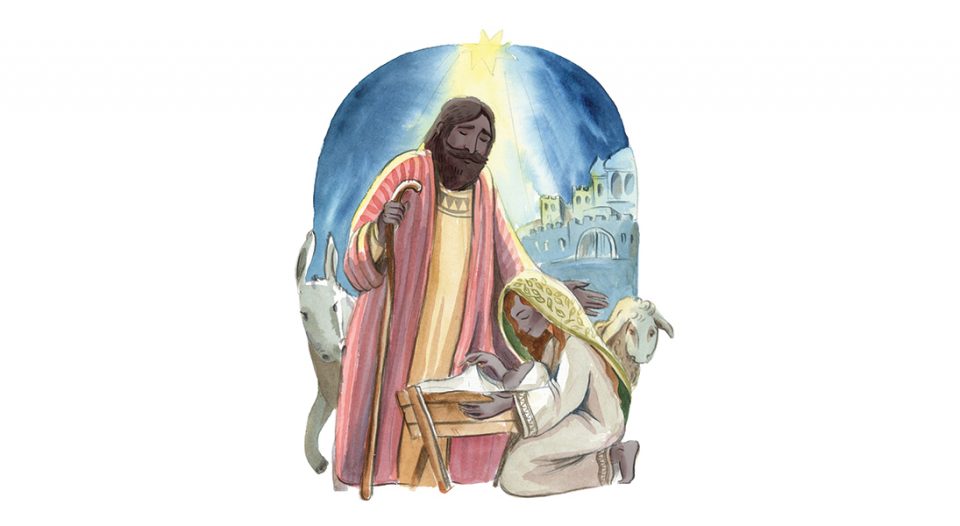I was dreading Christmas. As a pastoral intern serving across the country from my family, I didn’t have the money or time to make it home for the holiday. My beloved, trustworthy grandmother had once warned that if I were ever away from home on Christmas, I would probably die of a broken heart. Yet, with no sympathy for my predicament, December marched relentlessly on.
Lost within all the holiday shine, many spend this month dreading Christmas, which is uniquely freighted with emotional power. In December, both joy and sadness intensify: For some, this will be the first Christmas without a loved one. For others, including children, the barrage of holiday advertising exacerbates the stings of poverty. For some, the commitment to serve country or community will prevent the chance to see family. For others, the inevitability of seeing family bodes pain, not pleasure. In their eyes, Christmas looms not as hope but heartbreak.
Now the Messiah is showing up too? How many more guests will the Lord bring? Do I need to make more cookies?
Then there are those who shift into frazzled overdrive as they strive to prepare the perfect Christmas. Decorations, parties, concerts, meals, greeting cards, gifts … there is so much more to do! Task lists and schedules overflow. Stress mounts. Cheer can be overpowered by chores.
Amid this annual swirl, the Lutheran church turns blue and weird. Advent songs aren’t the familiar ones we hear on the radio. Advent readings and sermons focus on waiting, peace and John the Baptist, who wears camel’s hair and preaches fire. (He is awkward at holiday parties.) As the marketplace bustles in frenzy, the church feels almost eerily still. As the city bathes the plaza in magical light, the church lights a weekly candle. The whole season of Advent feels jarringly off-key.
Thanks be to God.
Advent interrupts the Christmas hype and hoopla with a bare call to “prepare the way of the Lord.” On the surface, this might reinforce the pressure we feel. Now Messiah is showing up too? How many guests will the Lord bring? Do I need to bake more cookies?
But the words of Jesus, John and the Gospel writers point us to cosmic events, lifting our heads to behold a more expansive reality beyond our control. They lead us to examine our hearts and to love our neighbors in need. Advent urges us to redirect our attention toward what’s essential. Advent begs us to stop fretting about preparing our world for Christmas and instead prepare ourselves for Christ.
This is not the kind of holiday get-together anyone plans. It is God’s breathtakingly raw and real grace.
This kind of preparation is important because Christ won’t be what we expect. No one planned for a Messiah who would sleep in a slop trough, flee as a refugee, identify with the most vulnerable and be executed as a criminal, much less rise alive from the grave. He is both disappointing and wonderful, a surprise beyond anyone’s wildest prediction. Salvation appears in a small package with threadbare wrapping (Luke 2:7). No one could guess the humility and humanity of God unveiled in the face of baby Jesus.
Because we can never anticipate God’s strange, beautiful choices, the Advent project of getting ready for Christmas has nothing to do with decorations or deadlines. Advent frustrates our expectations to clear them out of our hearts’ way and leaves us more open to receiving God’s surprises.
We have no idea how or when or where God will show up, but we can take clues and comfort from the story to which Advent leads us. While we pursue a fleeting utopia, God packs bags and hits the road to move into our messy, conflicted world. The promised gift arrives in an overlooked stable, the child of an unwed couple far from home. He is greeted not by neonatal specialists but shepherds who probably smelled worse than John the Baptist’s breath. This is not the kind of holiday get-together anyone plans. It is God’s breathtakingly raw and real grace.
The Christmas I was dreading as an intern arrived as scheduled on a Sunday morning. I rose early and swept the sanctuary floor before worship; all was calm, all was bright. I felt a strange and surprising peace that blossomed into a long day’s joy.
After a lovely worship service, I shared a delightful dinner with a couple from the congregation who graciously welcomed me. It was a striking contrast to the frantic holidays I’d spent as a child of a broken home, being shuttled from place to place for hurried feasts and gift exchanges. It was the most unusual and happiest Christmas I could remember.
Was my heart broken? Yes. It was broken open, and into it God poured fresh, unplanned, unexpected grace. I did not die. If anything, I became more alive.




